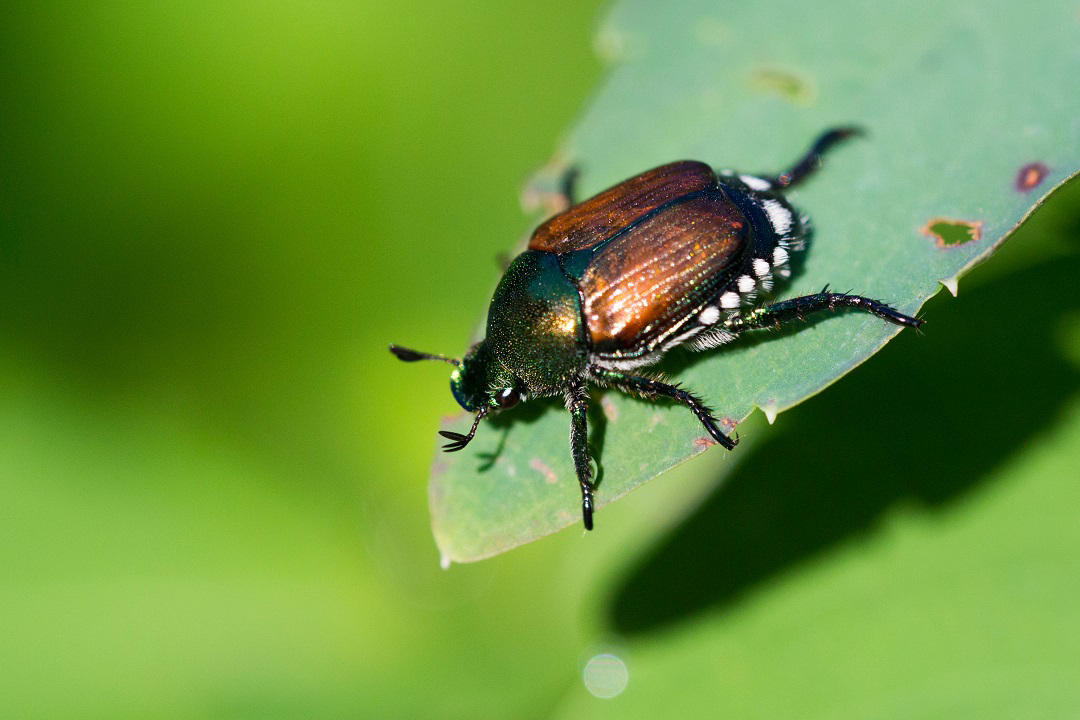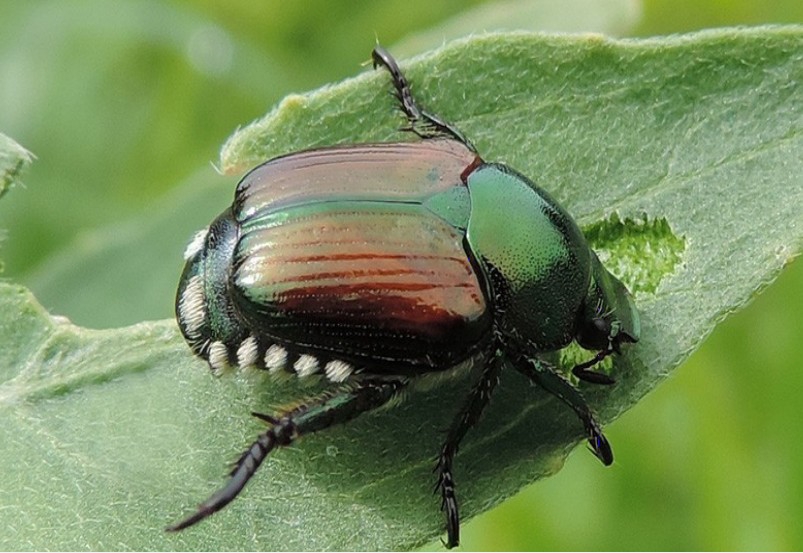For us rose lovers in Western Europe this beetle can do serious harm if it manages to get established here.
Till a few years ago the beetle was only found in Italy. It came along with boats from Asia just like the Asian hornet which has spread all over Europe and is a real threat to our native cultivated and harmless honeybees. European honeybees lived for millions of years together with our native European hornet and while that latter one can pick a bee now and then it's a gentle giant and considered an ally and partner of gardeners as it eats aphids, sawflies and caterpillars. However the Asian hornet is smaller than his European nephew but much more aggressive. They can kill an entire bee hive in half an hour.
The Japanese beetle has the same voracious nature and often targets it's prey plants or trees in group.
The Japanese beetle starts it's life like nearly all beetles of the same family: They hatch from the eggs and stay subterranean for one year as grubs. The female lays it's eggs on lawns and the grubs target the roots of the grass. When temp rises they submerge as an adult beetle. Once a beetle has found food it spreads feromones to attract other beetles and work as a team to consume the victim plants or trees. The beetle dies within 45 days and one female can produce 60 eggs.
Inhabitants of Belgium, Holland, France, Germany, the UK etc.. have a duty to report any beetle they see or find.
How can we reduce impact on our beloved roses? If you have lawn you can treat it with Paenibacillis Popilliae. This is a fungy which only kills the grubs of the Japanese beetle so all other organisms are safe. Kaolin clay (China clay) is a very effective product in preventing damage. Just like rock dust (lava dust) it's sprayed on the foliage of our roses. The beetles die when they eat from it or they leave the plants alone. Spraying with Neem oil two times a week can put the beetles off from eating the leafs.
This of course is all speculation at this time because we don't know if the beetle will succeed in conquering Western Europe but it's always best to be prepared.
If there's any news regarding the spread of the Japanese beetle I will report it here.




